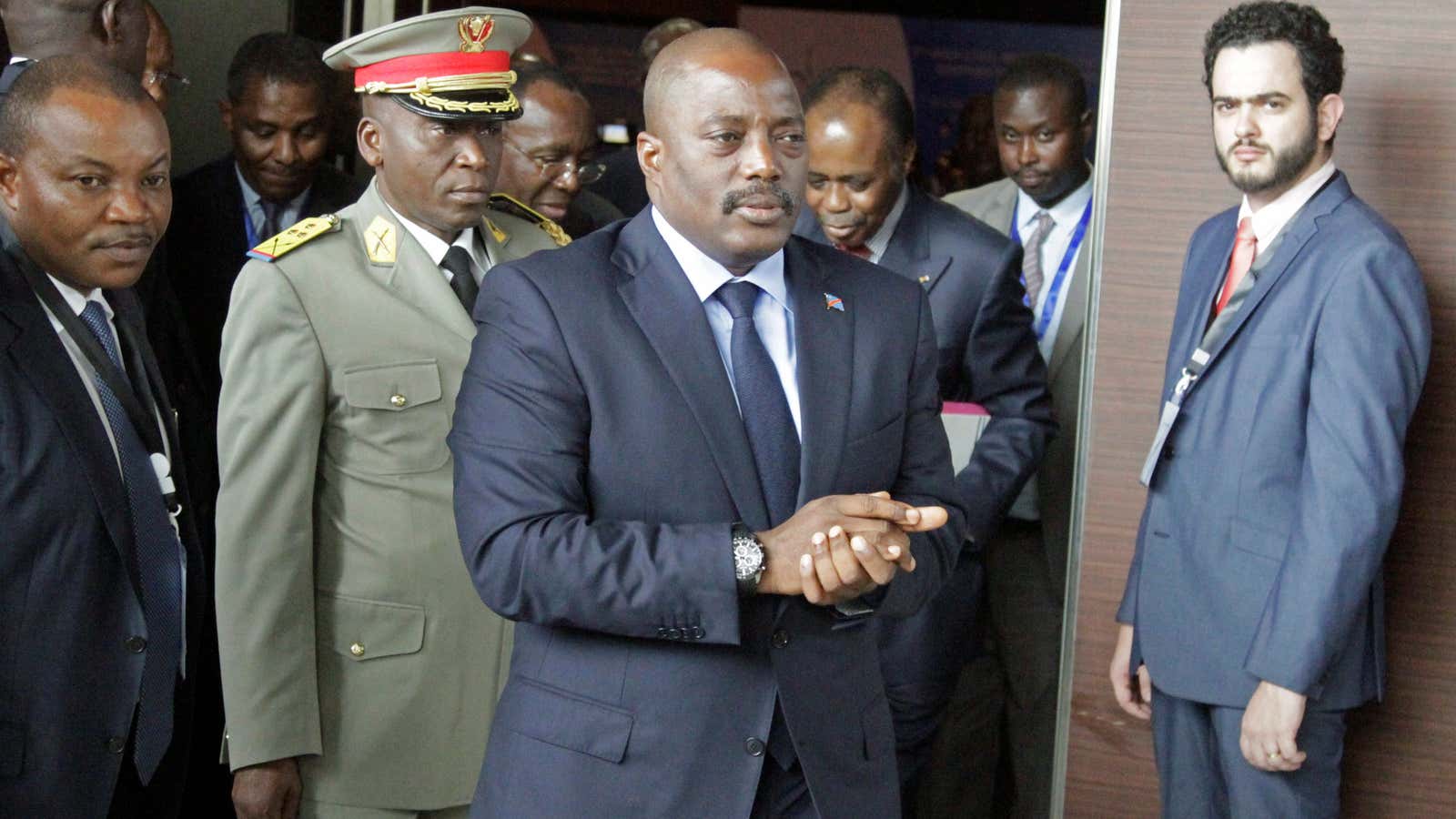Officials in the Democratic Republic of Congo have ordered telecom companies to block social media networks from Sunday night (Dec. 18), ahead of protests against president Joseph Kabila, the day he is supposed to step down from office.
The block spans content creation and information sharing platforms, including Facebook, WhatsApp, Instagram, Skype, Viber, Pinterest, YouTube, LinkedIn, among others.
The order was issued through a letter from Congo’s Posts and Telecommunications Regulatory Authority (ARPTC), which called for the “temporary blocking of sharing of images, video and voice (data) over the network.” The telecoms regulator even went further, asking that “In cases where partial blocking is not possible, you are required to block access to the relevant social networks entirely.”
Some internet providers told AFP that they would comply with the order fearing that their licenses would be terminated if they refused to comply.
President Kabila’s constitutionally-mandated second term comes to an end on Monday (Dec. 19), and the opposition had earlier rejected the move to postpone the elections to April 2018, calling it a “flagrant violation” of the constitution. The country suffered repeated bouts of unrest ever since the elections were delayed, with more than 50 people killed during clashes in September, according to the opposition. Kabila has been president of the mineral-rich but poor country since 2001, and his family is reported to have built business networks worth hundreds of millions of dollars that reach into every corner of Congo’s economy.
The announcement was met with fierce criticism on Thursday (Dec. 15), with internet advocacy and human rights organizations calling on the DRC to overturn the decision to block social media sites.
This was not the first time that authorities have called for a block on social media or the internet. In Jan. 2015, the government shut down the Internet and blocked SMS service for mobile phones throughout the country following deadly clashes with the police. At the time, a government official told the Wall Street Journal that the measure helped prevent opposition leaders from rallying more protestors.
Peter Micek, who is the global policy and legal counsel at Access Now, says the surgical strike against social media networks and not the entire internet infrastructure is proof that the government is getting nifty.
“They’ve learned a lesson from previous internet shutdowns, namely that their economy depends on access to global networks,” said Micek. “They’re hoping a more targeted block only hampers protests, not banks and the like.” Telecom and internet providers, he said, “must resist this call to shut down networks, the telecommunications minister should speak out against blocking, and the government should repeal its threat.”
Julie Owono, the head of the Africa desk at the Internet Sans Frontières said cutting down or filtering the internet is the only way for the government to control the flow of information in and out of DRC.
“But it is counterproductive,” she said. “The more you try to censor, the more the information circulates. The whole world will have all eyes on the DRC from now until Dec. 19 at least.”
